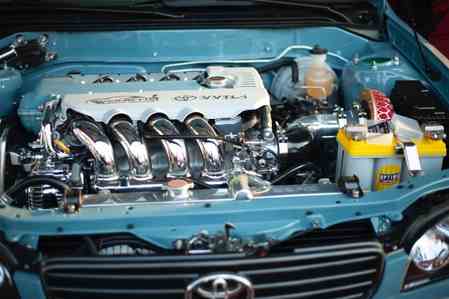Embarking on the journey of engine replacement is often a necessary but daunting task for car owners. Whether it’s due to wear and tear, a catastrophic failure, or a desire for enhanced performance, installing a new engine can breathe new life into a vehicle. However, like any major automotive surgery, engine replacement can come with its fair share of challenges. In this blog, we’ll explore some common problems after engine replacement that car owners may encounter and discuss ways to navigate these issues.
Mismatched Components:
One of the common pitfalls is the inadvertent mismatching of components. Different engines may have varying specifications, and ensuring that every part aligns seamlessly is crucial. Mismatched components can lead to issues such as overheating, poor performance, or even engine failure. To mitigate this, thorough research and consultation with automotive professionals are essential before choosing a replacement engine.
Electrical Gremlins:
Modern vehicles are equipped with intricate electrical systems that communicate with the engine. After an engine replacement, these systems may need to be reprogrammed or recalibrated to sync with the new power plant. Failing to address these electrical adjustments can result in a myriad of problems, including erratic engine behavior, warning lights, and poor fuel efficiency. Seeking the expertise of a qualified mechanic with knowledge of your vehicle’s electronics is crucial to resolving these issues.
Fluid Leaks:
It’s not uncommon for fluid leaks to manifest post-engine replacement. This can be attributed to issues such as improperly seated gaskets, loose connections, or damaged seals. Identifying the source of leaks promptly and rectifying them is vital to prevent damage to the engine and surrounding components. Regular inspections and routine maintenance can help catch and fix potential leaks before they escalate.
Fuel System Problems:
The fuel system plays a pivotal role in engine performance, and any disruption can lead to issues like poor acceleration, stalling, or difficulty starting. After an engine replacement, it’s essential to ensure that the fuel system is clean, free from contaminants, and delivering fuel at the correct pressure. Fuel injectors, fuel filters, and the fuel pump may require attention to guarantee optimal functioning.
Exhaust System Challenges:
The exhaust system is intimately linked to engine performance, and any alteration to the engine may impact this system. Issues like misalignment, leaks, or damaged catalytic converters can arise. A thorough inspection of the exhaust system, including the manifold, pipes, and muffler, is necessary to address potential problems and ensure that emissions are within acceptable limits.
Transmission Troubles:
An engine replacement can sometimes trigger complications in the transmission. Incompatibility issues, changes in power delivery, or electronic communication glitches may surface. It’s crucial to assess the transmission’s compatibility with the new engine and make any necessary adjustments. Transmission fluid levels and quality should also be monitored to prevent premature wear and tear.
Cooling System Woes:
The cooling system is paramount to preventing engine overheating. If not properly integrated with the new engine, issues such as inadequate cooling, overheating, or coolant leaks can occur. Regular checks on coolant levels, radiator condition, and thermostat functionality are imperative to maintaining the engine’s optimal operating temperature.
Vibration and Noise Issues:
Unusual vibrations or noises post-engine replacement may indicate misalignments, loose components, or imbalances. From engine mounts to belts, ensuring that everything is securely in place can help eliminate these annoyances. Ignoring such symptoms could lead to more severe problems and compromise the longevity of the replacement engine.
Conclusion:
Embarking on an engine replacement journey is akin to setting sail on uncharted waters. While challenges may arise, proactive measures, diligent research, and collaboration with automotive professionals can help navigate these waters successfully. Addressing common problems post-engine replacement ensures not only the longevity of the new power plant but also the overall health and performance of the vehicle. By staying vigilant and taking a proactive approach, car owners can enjoy the renewed vigor of their vehicles for many miles to come.

